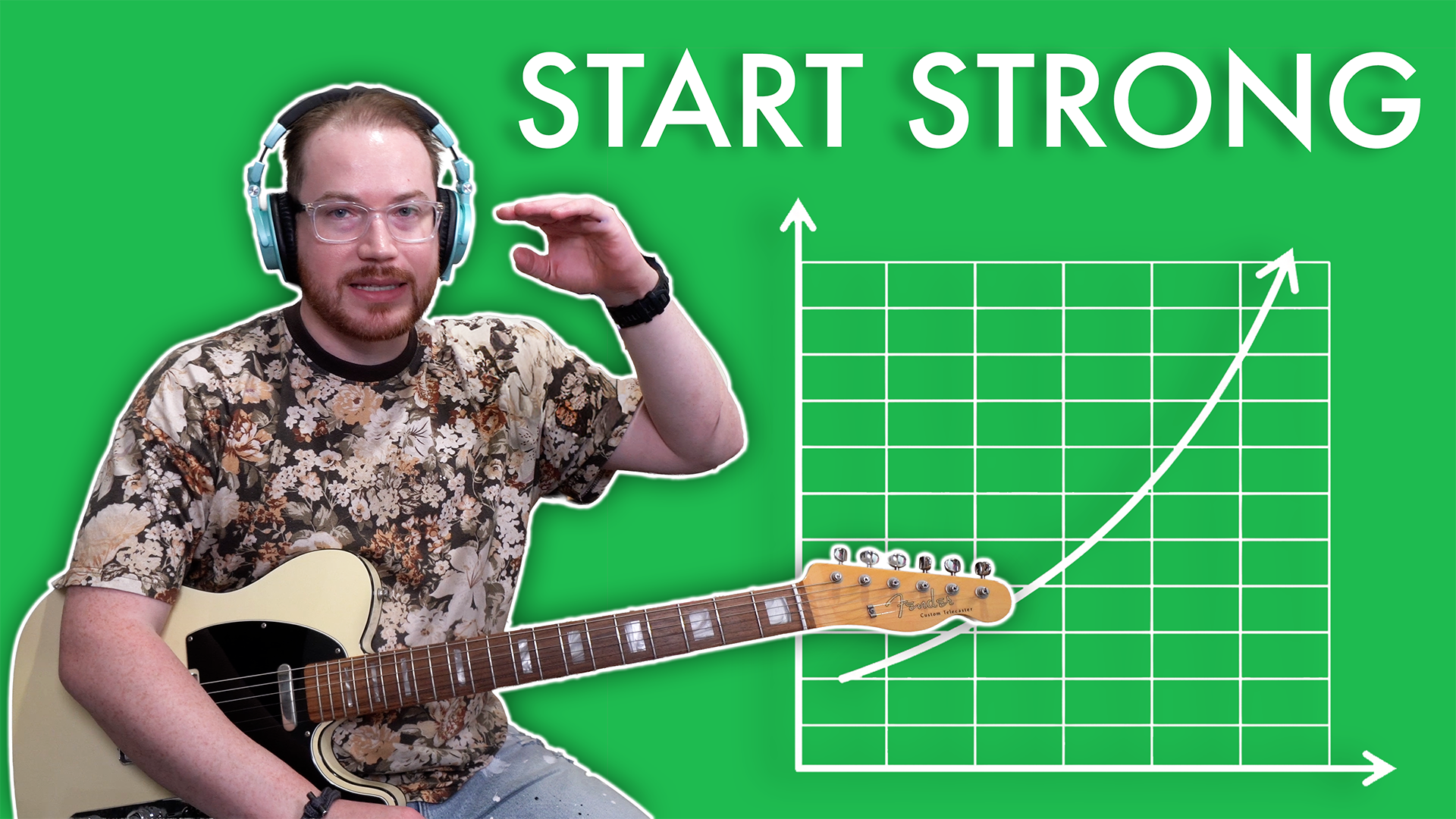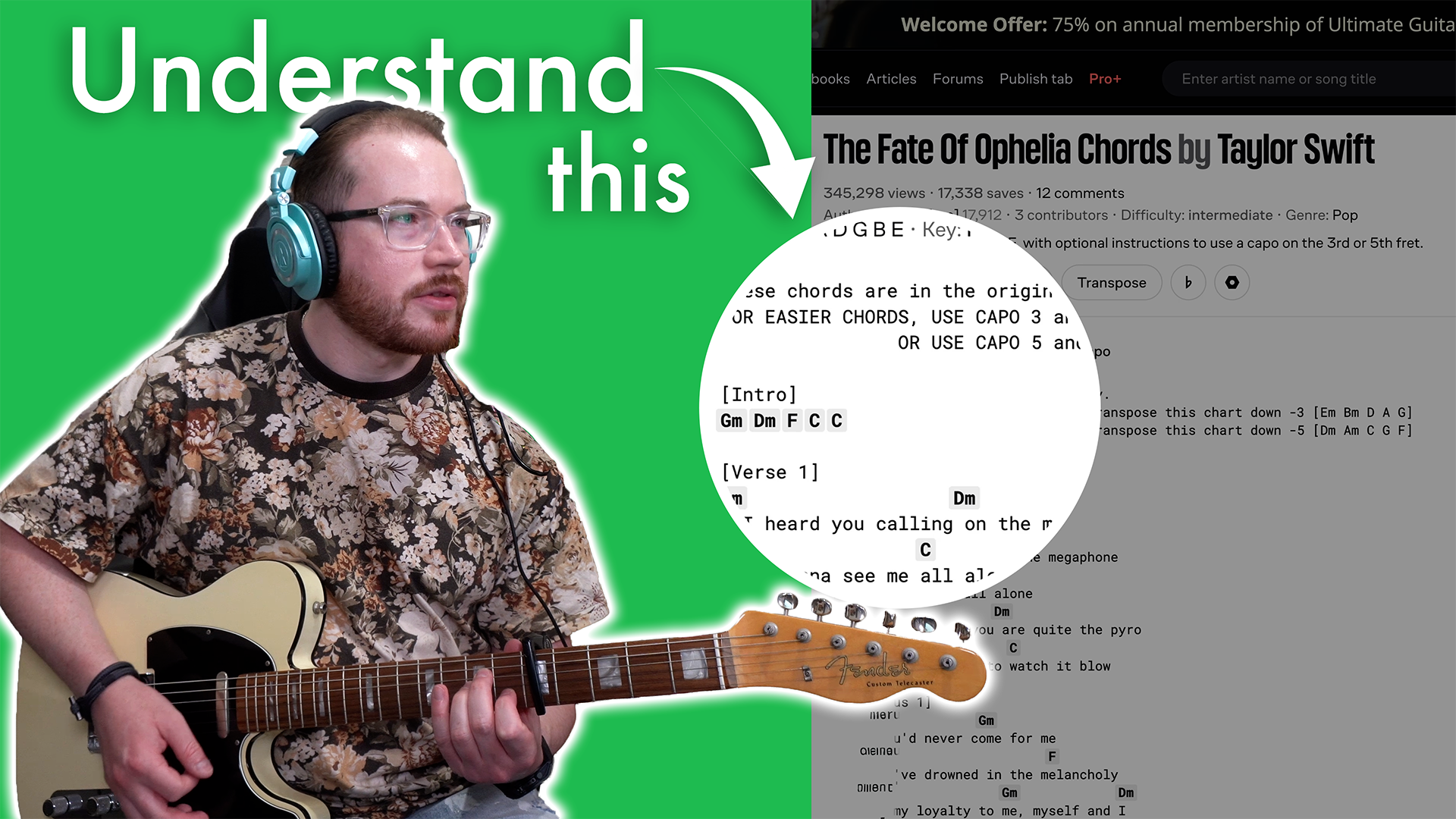How to recover from mistakes like a professional
In this lesson, we learned how to play 'Bad Habits' by Ed Sheeran.
But while I was watching the official acoustic video, I noticed that Ed made a mistake.
If you read through the comments, you'll see that no one seems to have mentioned anything about it.
Why is that? There's always a troll that wants to point out when someone does something wrong. Ed Sheeran is such a well-known artist, I'm sure that someone has noticed!
Fig.1: In the video, Ed Sheeran recovers from his mistake so well that unless you know what you're looking for, you're probably not going to notice it.
But what matters is who has noticed.
There are two types of people who might be watching Ed Sheeran’s official acoustic video:
Less-experienced musicians (casual listeners)
Experienced musicians
If you're an experienced musician and you do pick it up, you know that mistakes are normal.
No musician can play things with 100% accuracy, 100% of the time.
The only thing that matters is how good you are at recovering from your mistakes when you make them.
In this lesson, I'm going to show you why the saying "practice makes perfect" is a lie, and how you can get better at recovering from mistakes so that if you slip one into a performance, you can be confident the majority of the audience won’t even notice.
Practice makes perfect is a lie
The old saying “practice makes perfect'“ is a lie.
What should be said is
Practice significantly decreases the likelihood that you will make a mistake to close to 0% (so, almost perfect).
But this phrase isn't half as catchy.
We practice the guitar in order to develop fluency on the instrument. This means we don't have to give our playing any thought. It just flows. The problem is that most people think they have developed fluency, but they really haven't.
Fig. 2: The quantity of time spent practising against the likelihood you will make a mistake will get closer and closer to 0 forever but will never reach it.
I've been playing the guitar for over 20 years and I know the open E major chord really well. There is no point in me practising this chord. No amount of time I spend practising this chord is going to make me any better at playing it. If I make a mistake, it's a genuine mistake. A genuine mistake is one where there is nothing you could have done to prevent it. I think this is a really important point for people to realise if they get nervous performing.
If you're properly prepared, then you can be confident you'll get it right. If you mess up and make a mistake, don't worry about it. It was a genuine mistake and that means there was nothing you could have done about it. Practice will never result in perfect. But practice will significantly reduce the likelihood that you will make a mistake.
If we were to put the quantity of time spent practising against the likelihood you will make a mistake on a graph, it would look like this. It will get closer and closer to 0 forever but will never reach it. Once you hit a point of fluency, any practice you do after that is probably not going to help.
How to practice recovering from your mistakes
If you make a mistake on purpose, it's not a mistake.
This means the only opportunity you have to practice recovering from your mistakes is when you make one.
Unfortunately, this does make it a little difficult to create a practice routine to improve in this area.
However, there are still a few things that you can do to get better at recovering from your mistakes.
If you take the time to understand what happens when you make a mistake and develop the right mindset around making it, you’ll be able to use your mistakes as awesome opportunities to practice recovering from them.
Often, I will see students make a mistake and then stop... cause they made a mistake.
This is a problem because you're subconsciously allowing mistakes to become this big scary mental block that derails your performance. Also, if you're consistently making mistakes in the same place, you'll actually be developing negative muscle memory and your hands will start to think they are supposed to be stopping there.
As a general rule, you don't want to be making any more than two mistakes out of every ten times you play something. When you make a mistake, you should always try and recover from it. This will be really hard at first but it will get easier over time.
When you try and recover from your mistake one out of two things will happen:
You'll recover from the mistake effectively and continue your performance. Or,
You'll train-wreck your performance, which doesn't matter cause you were going to stop anyway.
When you think about it like this, you'll realise that the only possible outcomes are what was going to happen anyway, or a better outcome.
There are no downsides to trying to recover from every mistake that you make!
The reason making mistakes is so scary is that when we're starting out, we tend to practice things in a linear fashion.
When something happens that takes us out of this flow, it puts us on a trajectory that we weren't prepared for and it's difficult to think instantaneously about what went wrong and how to fix it. It's like when you jump into a pool of ice-cold water. The initial shock can be disorientating!
Going into mistakes with the intention that you're going to recover will help you get used to this initial shock and you'll be able to stay calm when something unexpected happens. Over time, this - combined with the fluency you will have developed by properly integrating your intellectual, physical, and aural understandings - will help you calmly and confidently recover from any mistakes you might make.
And the audience won't even notice.





